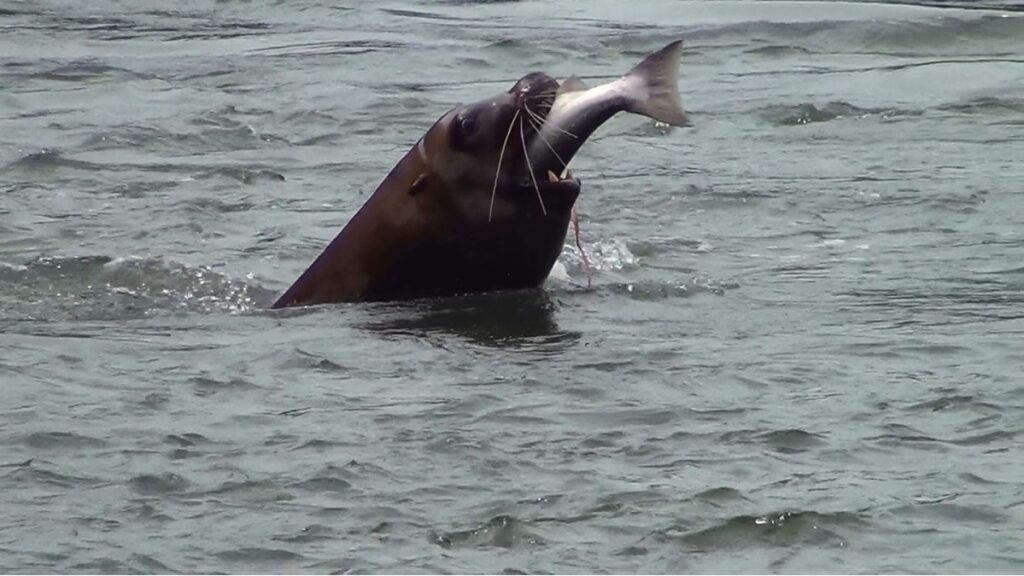Sea lion near Bonneville Dam. Source: Army Corps of Engineers.
OLYMPIA – A proposal from Sen. Jeff Wilson to get state officials the money they need to combat sea lion predation on the lower Columbia and its tributaries was defeated behind closed doors this week as lawmakers negotiated a final budget deal.
The budget bill that passed Thursday in the final hours of Washington’s 2024 legislative session deleted a $1.5 million appropriation to control fast-growing sea lion herds. Sea lions are now seen further up tributary rivers than ever before, and experts say salmon and steelhead runs in some areas are in danger of being wiped out.
Wilson, R-Longview, who worked to include the appropriation in the Senate budget proposal, said he was shocked to learn House Democratic budget negotiators refused to accept it.
“I was told they couldn’t bear the thought of euthanizing sea lions,” Wilson said. “With all due respect, I think my colleagues need to be educated about this threat to our struggling salmon and steelhead runs. Taking the side of the sea lions is a little like rooting for the New York Yankees.”
The sea lions are voracious eaters, each consuming up to 40 pounds a day. Populations have doubled since 2005 and on average at least 12 percent of the river system’s fish runs are now lost to predation. Losses on specific runs can be much greater. Before control efforts began, scientists concluded sea lions were consuming 44 percent of spring Columbia chinook, and 25 percent of Willamette winter steelhead.
Efforts by fish and wildlife departments in Washington and Oregon to capture and cull sea lions have reduced predation near Bonneville Dam and Willamette Falls, saving tens of thousands of threatened and endangered salmon. After years of work, the states obtained a permit from the National Marine Fisheries Service in 2020 allowing them to expand predator control programs on the lower Columbia and its tributaries.
But the Washington agency needs equipment suited to the shallower depth of tributaries like the Cowlitz, where sea lions swarmed near the barrier dam last year, 70 miles upriver. Wilson also had hoped to fund data collection efforts so that the permit could be expanded to the Puget Sound region.
“If we don’t get predation under control, we are going to see a complete wipeout of some fish stocks, as happened at the Ballard Locks 30 years ago,” Wilson said. “The lesson is that when sea lions congregate, fisheries agencies must be able to act – or else our fish runs become an all-you-can-eat buffet.”











